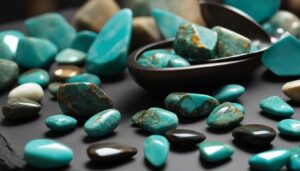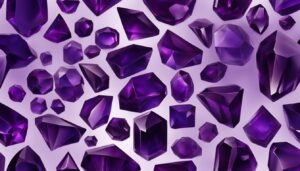Since henna tattoos are based on the reaction between henna dye and human skin, certain areas of the body respond differently to henna dye. To make henna tattoos last longer, you can leave the henna paint on your skin for at least an hour. Because henna reacts with the skin and its chemistry, henna tattoos may not last long on these areas.
Henna tattoos do not hurt. this si because henna tattoos are not injected into the skin as other tattoos are. Instead, henna tattoos are applied by placing a paste over the skin and allowing the flesh underneath to stain. These stains are painless, and they fade away after a few weeks.
Natural henna dye penetrates the skin and leaves a stain that becomes a tattoo. Unlike permanent tattoos, where ink is injected into the skin, henna acts as a temporary dye. Unlike permanent tattoos, which are injected under the skin, temporary tattoos are sold as “henna,” which is applied to the surface of the skin and usually lasts two to four weeks. Henna designs are not tattoos: tattoos are permanent because the ink pierces the skin, whereas henna is a temporary dye that sits on the surface of the skin.
How Henna Is Normally Used
The use of henna is very similar to regular tattoos, except that they are neither painful nor permanent. Henna is a natural vegetable dye traditionally used to create temporary tattoos directly on the skin. Henna is a plant-based dye that is only approved for use as a hair dye, not directly on the skin, as in the body decoration process known as mehendi. Henna ink is made from the henna plant and can be mixed with other leaves and oils to make a paste that is applied to the skin.
Made from henna, henna can dye hair, skin, and clothing a dirty brown, but only lasts a few weeks. Henna hair dyes tend to be less acidic to keep your hair from drying out too much. Quora user, multiple tattoos, worked as an apprentice tattoo artist, henna artist.
Henna is actually a permanent dye, but henna only stains the top layers of the skin, the ones that are often removed…so it’s a natural exfoliator. Your skin, even though the dye molecules themselves remain immobilized, the imperfections are removed. Application A common method of moisturizing a henna tattoo is to mix lemon juice and sugar and apply it to the henna pattern, which helps the henna tattoo to last longer and stain more deeply.
Henna Tattoos Are Not Injected
Unlike real tattoos, which are designed to inject ink under the skin, henna tattoos are simply applied on top of the skin layer itself, as the design of the tattoo is based on chemical interactions between henna dye and skin proteins. When other ingredients like p-phenylenediamine (PPD) are added to traditional henna, the result is called “black henna” and is often used in tattoos to make them darker and last longer.
While natural henna is safe, it is usually mixed with paraphenylenediamine (PPD), a chemical used to give tattoos a deep black color that looks more like a real tattoo and dries faster. True henna is orange/brown in color, but most BHTTs are not based on henna at all, but on a substance in hair dye called paraphenylenediamine (PPD).
This type of henna is dangerous because it contains paraphenylenediamine (PPD), a hair dye. When applied to the skin, this type of henna may look like a real tattoo, but allergic reactions to paraphenylenediamine (PPD) can cause blisters, open sores, and scarring. An additional ingredient used to blacken henna is often coal tar hair dye containing p-phenylenediamine (PPD), an ingredient that can cause dangerous skin reactions in some people.
Black henna tattoos can also increase sensitivity to a chemical called para-phenylenediamine, meaning you could have a severe allergic reaction to legal hair dyes.
Black Henna May Be Dangerous
The US National Health Service warns that black henna tattoos may contain high levels of toxic chemical dyes that are generally banned for use on the skin. It is important to remember that so-called black henna temporary tattoos (HHTTs) can be dangerous, sometimes causing severe skin reactions.
Temporary black henna tattoos can not only cause extremely painful skin lesions, but also lead to lifelong allergies to hair dye. The FDA is warning consumers to stay away from any temporary tattoos labeled “black henna” or “henna premix” because they are known to contain potentially harmful impurities, including silver nitrate, carmine, pyrogallol, dispersed orange dye, and chromium.
Brown henna, most commonly used for temporary tattoos, is made by grinding dried henna leaves into a powder and then diluting the mixture with water and a little oil. Henna is a tattoo-like temporary body art that uses dyes from the henna tree (Lawsonia inermis). Known as a mehndi, henna tattoos are not permanent and last one to two weeks, depending on the skin, the quality of the henna, and how often the area is cleaned. They usually develop a deep, intense color in about 2 weeks before fading, but it really depends on where you put them, how often you wash them, and how quickly you exfoliate your skin.
Why Henna Doesn’t Hurt Users
The reason is that henna tattoos won’t hurt you because henna paste is applied to the skin whereas in other tattoos the ink is injected under the skin with a tattoo needle and you will feel pain. The reason is that henna tattoo cream is applied to the skin, whereas a real tattoo uses a tattoo needle to inject the ink under the skin, so it is a very painful process.
Even if your skin doesn’t have a severe reaction to black henna, tattoos can still increase your sensitivity to PPD, which may increase your chances of having an adverse reaction to PPD in hair dye in the future.
Tattoo artists using black henna often mix in PPD (paraphenylenediamine) to deepen the color, but this formula can be very harmful when applied directly to the skin and can cause severe reactions to hair dyes. Henna pastes for skin tattoos and henna pastes for dyeing hair usually have different ingredients and should be used accordingly.




